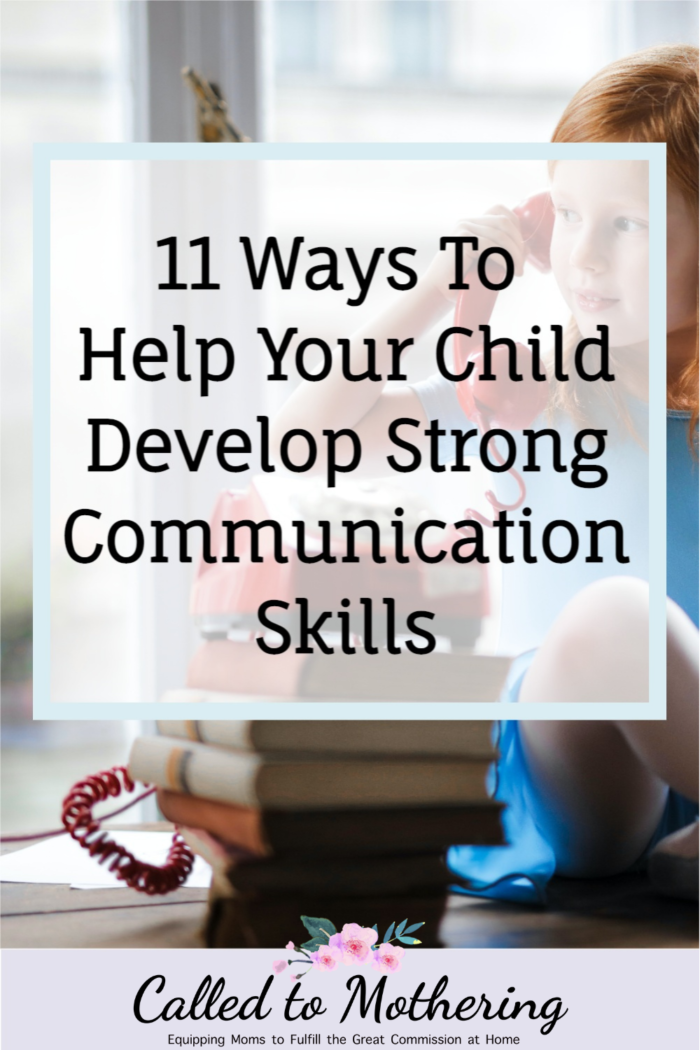
Imagine you’re sitting down with your child watching TV. All of a sudden he or she starts making a strange face. Your kid is trying very much to communicate something to you, but you just do not get it.
Or it could be the other way around. He or she has just done something you consider wrong, and you are trying to give a moral lecture on the matter.
However, like Bart from The Simpsons, it just sounds like “blah blah blah” to your kid!
These scenarios leave you wondering how to get your child to effectively communicate, or how to get your point across to them.
One thing is for sure- children are great mimics. They mimic our communication patterns as adults, and most of all, as parents. Here are some great tips for improving children’s communication skills, and for getting them to understand you!

1. Embrace Open-Ended Questions
When interacting with your child, avoid close-ended questions that require a yes or no response. Embracing open-ended questions like “how was your day?” makes the child more interactive in the dialogue, and in the process, develops communication skills.
2. Use Interactive Statements
Statements like, “That’s interesting” and “Tell me more” go a long way to making your child converse more. Having exclamations like “Wow!”, “Really?” or “I see” also makes your kid feel that you’re interacting with him or her, so it makes communication easier for them.
3. Engage Them In “Do’s”
Having “don’t” statements reinforces the bad behavior you are trying to make your kid avoid. Instead of making your child feel lectured all the time, or making them feel they do not get things right, swap the “don’ts” with “do’s”.
For example, instead of saying “Don’t color on the walls”, try saying, “Do your coloring in this book.”
Children respond more to positive statements than to negative ones!

4. Talk With and Not At Your Child
Instead of giving lectures and strict instructions to your child, it is best to have a two-way conversation. This is where you practice both talking and listening, which makes them feel that they matter.
If your child has yet to converse with good vocabulary and may be stubborn, look into buying certain toys for toddlers and preschoolers to help them express themselves.
5. Prioritize Requests
Making requests important is a good way to have your child understand when things should be taken seriously. Make sure you first get your child’s attention, then speak firmly to show you mean what you are saying.
Also, give the child a reason why he/she must do what you’re telling them to do at that time.
6. Teach Them To Make Eye Contact
Children need to know how to establish eye contact with the person they are speaking with, as it shows interest and respect to the other party in the conversation. It’s ill-mannered to look away during a conversation as it shows disinterest.
7. Train in Clear and Proper Speaking
You should train your kid to speak clearly and properly with good pronunciation and grammatically correct sentences, so that they can be understood better. It is a basic communication skill not to speak too hurriedly also.

8. Tell Them Not To Interrupt
Another basic communication skill is not interrupting a speaker when he/she is talking. It is good to teach your child how to be patient in letting someone finish what they have to say first, before they begin speaking.
9. Teach Good Listening Skills
As a parent who wants good communication skills in their child, it is wise to teach them to also have good listening skills. In that way, they will be able to contribute informatively to the conversation at hand.
10. Help Them Join in Conversations
There is also the art of joining in conversations without seeming rude. Teaching your kid to join in lively conversations with either a polite greeting, or a polite entrance, goes a long way to developing good communication skills.

11. Play Fun Games
If all else fails, why not involve your child in some games to boost their communication? One popular and fun way to elevate children’s listening skills is to play telephone with them.
Involve them in a close circle where one child whispers a message to the next player on the right until everyone has had their turn. Then have them repeat what they heard.
This can be a great way for children to improve their listening skills and is a fun bonding game because you can involve other family members too.
A fun way to improve your child’s verbal communication is by playing the old favorite, Show & Tell. Let your kid pick a favorite film or book, then have them describe it in about five sentences.
Pointing directions is a fun non-verbal game you can engage your child with. You let him/her pick out their favorite location in the park and have them draw out maps on paper to non-verbally explain directions to it.
Afterwards, you could help him engage better in non-verbal cues and correct the mistakes he may have made.

There are a variety of ways and activities to help your children develop strong communication skills as they’re growing up. And giving them the ability to get their point across and be clearly understood is one of the best things you can do for them.
With a little bit of intentionality and some creativity on your part, they’ll have the tools they need to express themselves and make their voices heard!

Laura Casey is a blogger, mother, and housewife who shares her vast experience in parenting, motherhood, and pregnancy. She writes articles on the difficulties and challenges all parents face every day. She draws inspiration from raising kids, motherhood itself, and blogging. One of the most useful blogs in her list is https://top-mom.com/

Leave a Reply
You must be logged in to post a comment.